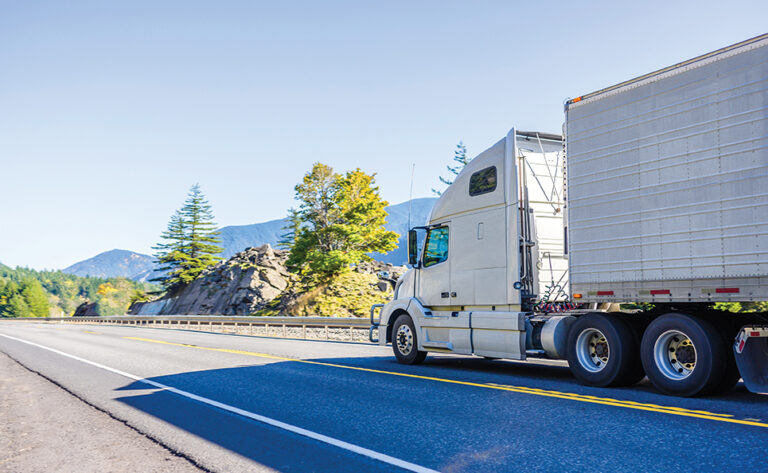One of the most important — and most often overlooked — factors in choosing a carrier to work for is the “culture” you’ll find when you get there. You’ll find tons of advertisements containing statements like, “You’re not just a number” and, “We treat you like family,” but those words are often slogans written by advertising agencies to attract drivers like you.
In addition to pay, equipment, running areas and other details of the job, you’ll want some idea of how you’ll be treated if you decide to work for that carrier. Unfortunately, recruiters are often so isolated from the operations part of the business that they truly don’t know much about how drivers are treated, except for the occasional complaint received from someone they recruited in the past.
Still, there are questions you can ask — and the recruiter isn’t the only person you should be asking. Current drivers can be a great resource. After all, they can tell you how THEY are treated by that carrier. Even then, however, it’s best to have some specific questions rather than simply asking, “How do you like Carrier ABC?”
The internet can be a good resource, too, but be wary. Trucker complaint sites usually don’t present all sides of the story, and drivers generally don’t post about good experiences they’ve had. You can also access information through the Department of Transportation (DOT) Safety and Fitness Electronic Records (SAFER) system. Entering the carrier’s DOT or MC number or the legal name on the “Company Snapshot” page (safer.fmcsa.dot.gov/CompanySnapshot.aspx) brings up an information page that provides the number of trucks and drivers reported, commodities hauled and headquarters information for the carrier. On the same page are links to safety and accident information and a licensing and insurance history page.
No website, however, can tell you what it’s like to actually work for the carrier. Whether you ask a recruiter, a driver or even someone in orientation, you’ll find out more by asking questions. Here are a few key questions to ask:
Can I refuse a dispatch if I feel it can’t be completed in the allotted time or there are other safety factors?
Many carriers talk a good safety game, but some can get downright ugly when you need to make a decision for safety reasons. What happens when conditions prevent you from making delivery on time? What about inclement weather, illness or delays? How much authority will you have to make decisions? If the carrier is more concerned about its on-time delivery percentage than your safety, it might not be a good fit.
What is the carrier’s policy for accessorial pay?”
Pay for activities such as detention, layover, breakdown, weather and so on can be important. Detention pay, for example, can differ greatly between carriers. One carrier might pay $15 an hour after the first hour of waiting, while another might pay $10 per hour, but only after you’ve waited four hours or more. Some detention policies require you to wait until the customer has paid — IF they pay — before you receive anything.
Layover is another issue you’ll face from time to time. Layover occurs when the carrier doesn’t have a load for you for 24 hours or more. You’ll need to know how often layovers occur, how much the carrier pays and the circumstances. Some carriers pay a reasonable amount for the first 24 hours you sit. Others pay a small percentage of the day’s pay you could have made if you were running, and don’t pay anything for the first 24 hours. Some don’t pay for layover at all.
Does the carrier use video cameras?
Many carriers use video recording systems to collect evidence used in training, discipline and, when necessary, in litigation. What the systems record and how the data is used can differ widely. You’ll want to know if the system includes an inward-facing camera, one that records YOU as you operate the vehicle. If you’re being recorded and you aren’t comfortable with that, move on. Things can only get worse.
How does the carrier handle family emergencies? How do I get home, and when?
This can be a sensitive topic for many drivers. Most carriers won’t allow you to simply drive the truck home, unless home is close by and the truck is usually parked there when you’re off duty. Many carriers will try to find a load going in the right direction, but some situations might call for you to get home more quickly. Will the carrier understand if you need to park the truck and get to the nearest airport? Will it offer financial assistance for purchasing a last-minute ticket? Or, will it be more concerned about the truck than about you?
How are breakdowns and repairs handled on the road?
At many carriers, the policy is to pay for all safety-related repairs at the nearest facility, but it doesn’t always work that way. The “nearest facility” might mean a shop that offers a better rate or is in a network that the carrier uses, or it could mean the nearest company terminal. Stories abound of drivers limping a truck along, hoping to avoid a DOT inspection, until they arrive at a terminal. Air-conditioning repair is expensive on the road; more than one driver has experienced a week or more in a hot truck waiting for a dispatch to a company shop where it can be repaired more cheaply.
What is the carrier’s turnover rate?
Every carrier tracks driver turnover. Don’t settle for guesses, estimates and averages. If a carrier has a turnover rate below the industry average, they’re usually happy to talk about it. Along with this question, ask:
What’s the most common reason given for leaving your company?
If large numbers of drivers leave because of poor equipment, disputes over pay or unpaid waiting time, there’s a good chance you’ll experience these things, too.
There are other questions to ask, and you may feel strongly about issues that aren’t mentioned here. Asking about a carrier’s culture before you commit to working there can help you make a better decision.
Cliff Abbott is an experienced commercial vehicle driver and owner-operator who still holds a CDL in his home state of Alabama. In nearly 40 years in trucking, he’s been an instructor and trainer and has managed safety and recruiting operations for several carriers. Having never lost his love of the road, Cliff has written a book and hundreds of songs and has been writing for The Trucker for more than a decade.








